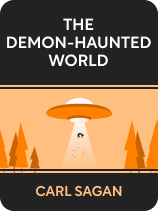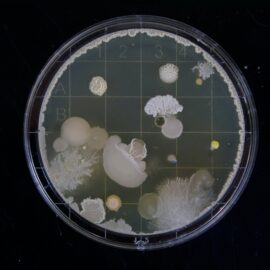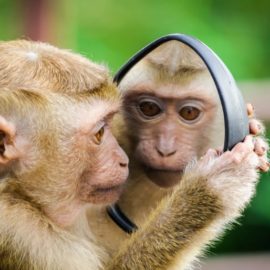

This article is an excerpt from the Shortform book guide to "The Demon-Haunted World" by Carl Sagan. Shortform has the world's best summaries and analyses of books you should be reading.
Like this article? Sign up for a free trial here .
How can we get rid of stereotypes and racism? How can we give more political power back to the people? How can we use science to advance civilization?
The more we apply scientific thinking and values to the world at large, the better the world will be. That’s the view of Carl Sagan. In The Demon-Haunted World, he argues that scientific understanding and principles can eliminate bigotry, fight tyranny, and bolster democracy.
Keep reading to learn more about this important connection between science and society.
Social and Political Change Through Science
Sagan argues that, once you adhere to the scientific tenets of skepticism and critical thinking, you’ll probably extend these principles into the social and political sphere. Because skepticism questions preconceived notions and poorly founded assumptions, science challenges the established order. In general, the more we learn about ourselves and the natural world, the more absurd and flawed the ideas of racism, misogyny, and nationalism seem. The more we share knowledge and information, the more we threaten those in power. The methods of science can be used not only to advance civilization but also to uphold the ideals of freedom and democracy. Sagan explains three ways that science and society can be powerfully woven together.
#1: Science and Stereotypes
Sagan believes a better, broader understanding of science would counteract bigotry and intolerance. To this day, ethnicities, nationalities, religions, genders, and sexual preferences are all stereotyped. According to Sagan, stereotypes are antithetical to the principles of science. Stereotypes tend to focus on a small amount of information while ignoring the rest. They shield us from the realities of the world and keep us from having to consider the complexity and diversity of humanity. They make things easier for one group of people at the expense of another.
Science, when correctly used, is independent of cultural biases. It tries to understand the world without glossing over the details. Science calls into question the insidious claims promoted through stereotypes. It argued against the inhumanness of black people used to justify slavery. It dismantled the misogynistic theory that women were too unintelligent or emotional to vote or become scientists. Bigotry survives through ignorance, while science relies on understanding.
| How Science Dispels Racist Myths Despite Sagan’s assertion that science can counteract stereotypes, scientists aren’t immune to bigotry. For example, science has a long and troubled history regarding race, and it’s still trying to overcome its racist legacy. Dating back centuries, the institutions of science supported racist beliefs, such as the idea that race determines our human traits and abilities, or the idea that white people are superior to non-white. Today, even as we’ve known for decades that race is largely a social construct, scientific discrimination still persists. Geneticists, however, are fighting the myth that racism is in any way grounded in scientific fact: Myth: The physical appearance, especially skin color, of humans can be predicted by genetics. Counter: Skin color predicts very little about the genetic similarities and differences between individuals or populations. A variety of skin colors occur across the globe, and studies show that DNA doesn’t accurately predict skin color in separate geographic regions. Myth: Race determines our abilities. An example of this is the idea that people of African descent are athletically superior. Counter: A small number of genetic variants are often “fetishized” by our culture and applied to entire communities. Genetics shows us that racial theories of athleticism are inconsistent. Myth: There is a correlation between race and IQ. Counter: Intelligence is largely due to environmental factors such as upbringing and educational access. Furthermore, IQ tests in particular are extremely biased toward white, Western society, and some suggest they cannot objectively measure intelligence at all. |
#2: Science and Political Power
According to Sagan, a well-informed and scientifically minded society will be better equipped to fight back against the injustices imposed by powerful institutions. Authoritarian governments and other powerful organizations use many tactics to suppress diverse opinions and concentrate power. They rewrite history or distort facts to more closely align with their interests. They stoke fear, anger, and hatred among the people to divide them. They use the media to influence and shape public opinion.
A critically thinking public, however, would be able to see through these tactics. A society well-versed in the scientific method could adequately question those in power and would not be so easily persuaded by the media. A skeptical culture, one that does not easily succumb to unscientific ideas, unfounded arguments, or appeals to their basest emotions, will help give power back to the masses.
| Mass Media as Propaganda In Manufacturing Consent, Noam Chomsky and Edward S. Herman demonstrate the need for a critically thinking public. They argue that American media is a powerful tool for propaganda that defends the interests of the nation’s political, economic, and social elite. Although there is generally a major difference of opinion between elites and the general public, the media promotes the opinions of the political establishment and marginalizes alternative voices. The media limits the range of debate to a small number of subjects, suppressing views that fall outside this limited range. As mass media has grown into an enormous industry, the consolidation of powers within the industry has only increased, exacerbating the issues we face as a society. The more concentrated the media industry becomes, the more it suppresses diverse opinions and serves the powerful elite. Sagan would argue that these attempts to limit diversity of thought would be much less effective in a scientifically literate society. If we could think critically about the information we are fed by the media, or about the other ways the established elite try to maintain their power, we might be able to change things for the better. |
#3: Science and Democracy
Sagan claims that science and democracy go hand in hand. Thus, a general understanding of science is necessary for a democratic society to succeed. Science and democracy share many principles (free exchange of information, self-criticism, objectivity, open debate). Like science, democratic political systems strive to become better through trial and error. Government and its policies are, in effect, wide-scale social experiments. Science and democracy, though, are more than just compatible: They depend on each other. Without the freedom provided by a democratic system, science can’t flourish. Without the critical thinking and openness to debate encouraged by science, democracy falls apart.
For democracy to work, the citizenry must be well-informed and involved in the political process. The people must willingly listen to opposing views and construct counter-arguments based on verifiable evidence and data. They must be able to tell the difference between pseudoscience and science, between well-founded and fallacious arguments. There must be a strict separation between religious beliefs and government policy, for a religion-based government is much more likely to impose its beliefs on others or persecute them for believing in something else. If we wish to maintain our democratic ideals and freedoms, we must educate ourselves in science, fund its development, and take heed of its warnings.
| Scientific Democrats: Social Good Through Science The interdependence between scientific and democratic ideals can be seen throughout history. Many argue that the ideas brought forth by the Scientific Revolution directly led to the democratic movements of the 18th century. In the late 19th century, a few American academics began to argue that the nation could best serve its political system by expanding its scientific institutions. Known as scientific democrats, this small group believed they could harness the proven powers of science to improve social organizations in an increasingly industrialized society. The scientific democrats wanted to restore the intellectual freedoms that allow individuals to participate effectively in a democratic system. Like Sagan, the scientific democrats believed universal access to science would protect the public not only from making poor collective decisions, but also from being controlled or manipulated by the knowledgeable few. |

———End of Preview———
Like what you just read? Read the rest of the world's best book summary and analysis of Carl Sagan's "The Demon-Haunted World" at Shortform .
Here's what you'll find in our full The Demon-Haunted World summary :
- Carl Sagan’s argument that a less scientifically-minded society is a less prosperous one
- Why you must remain critical and well-informed in an increasingly complex world
- The decline of educational standards in America and possible ways to reverse it






